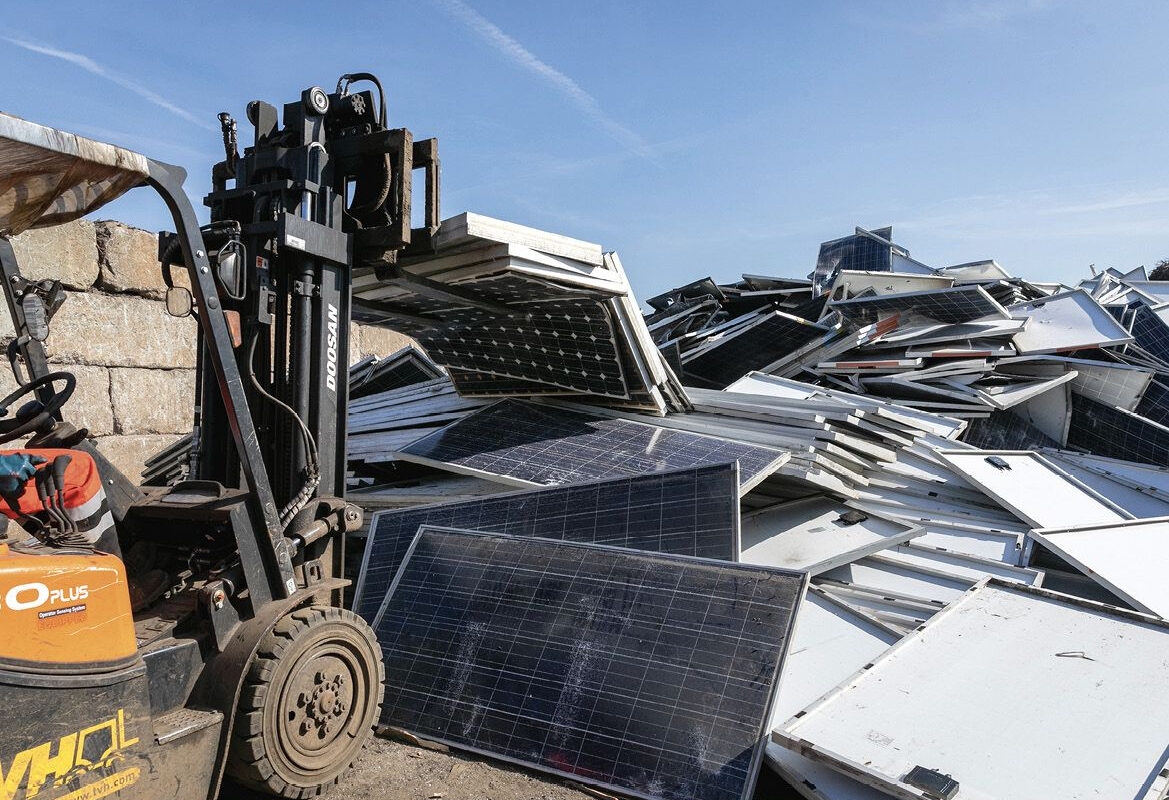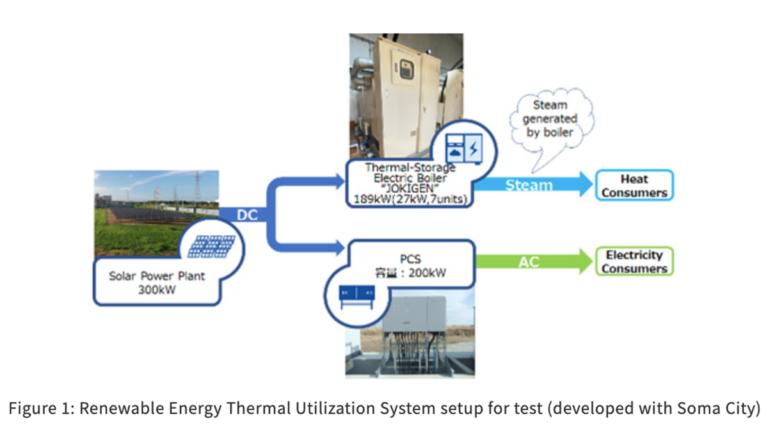Japan’s IHI Corporation says a pilot of a thermal utilization system that converts all previously discarded excess direct current (DC) at solar power plants into carbon-free steam has “demonstrated stable system performance.”
IHI says the Renewable Energy Thermal Utilization System economically and flexibly converts renewable electricity into thermal energy and stores it for later use. It explains that this is especially useful for solar power plants, which are prone to producing excess electricity due to the variability of solar radiation throughout the day.
The test project, located at the Soma City sewage treatment plant in Fukushima Prefecture, began in April.
This involved IHI installing a 300 kW solar power plant and a 200 kW conditioner at the sewage treatment plant to generate up to 200 kW of alternating current (AC) electricity.
To create the thermal utilization system, the company then installed seven Jokigen electric thermal storage boilers manufactured by IHI Inspection & Instrumentation Co. Ltd, one of the subsidiaries of the company. IHI says it has slightly modified the boilers to run on both DC and AC power.
IHI found that its thermal utilization system was capable of absorbing up to 189 kW (27 kW per unit) of direct current. It says it has used all electricity generated since April and is operating stably. In June, the plant consumed 23.16 MWh of alternating current and 11.86 MWh of direct current.
According to details on its website, IHI now foresees market expansion for its on-site thermal utilization system, with plans for commercialization.
This content is copyrighted and may not be reused. If you would like to collaborate with us and reuse some of our content, please contact: editors@pv-magazine.com.
Popular content



